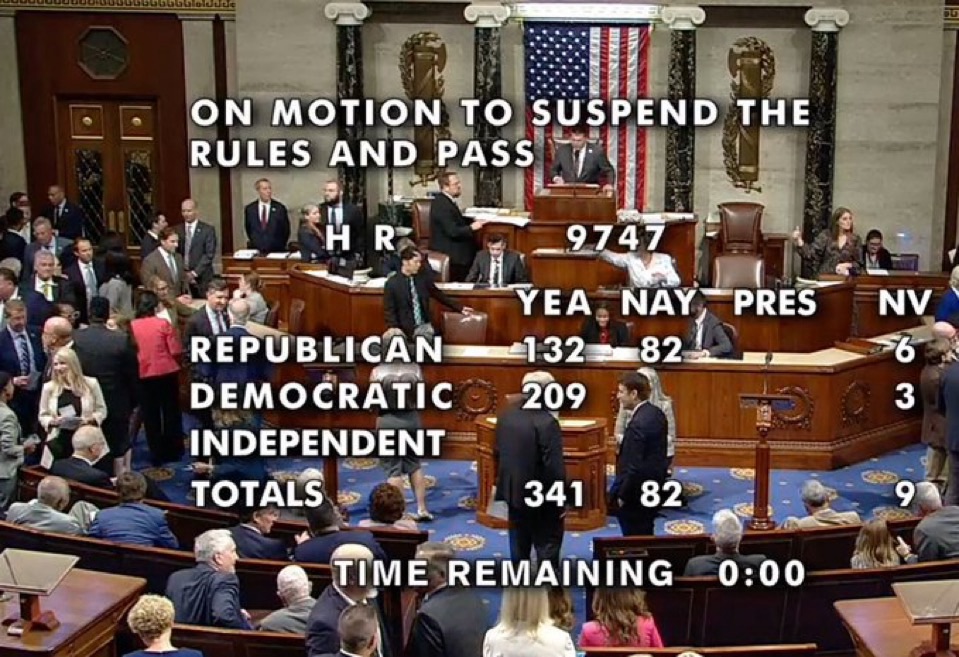In a pivotal move to prevent a looming partial government shutdown just weeks before Election Day, Congress took decisive action. The House of Representatives, under the leadership of Speaker Mike Johnson, R-La., successfully passed a measure by a vote of 341 to 82, with 132 Republicans supporting the bill. Notably, all 82 dissenting votes came from within the Republican Party.
The legislative body was facing an October 1 deadline, with minimal bipartisan progress on fiscal year 2025 spending priorities. In response, the House approved a continuing resolution (CR), extending the current fiscal year’s funding through December 20, thereby ensuring the government remains operational. Although the bill garnered strong bipartisan support, it saw a higher level of approval from Democrats than Republicans, as anticipated.
This issue of federal funding has long been a point of contention, especially among a faction of Republicans who have expressed frustration with the way spending bills were managed the previous year. They were particularly critical of passing two large funding packages rather than addressing 12 individual appropriations bills, a move they believe ceded too much control to the Democrat-controlled Senate. This ongoing battle over budget priorities has added to the political tensions that have marked the 118th Congress. In fact, disagreements over government funding were a key factor in the ouster of Johnson’s predecessor. Rep. Ralph Norman, R-S.C., a member of the House Freedom Caucus, remarked, “I think that’s a preview of what’s to come.”
Despite these challenges, Johnson made it clear in both public statements and private discussions that he would not support an omnibus spending package in December. “There won’t be a Christmas omnibus,” he stated emphatically, adding, “We don’t want any buses. We’re not going to do any buses,” referencing both “mini-buses” and large-scale spending packages.
Meanwhile, some of former President Trump’s allies have advocated for a continuing resolution that extends into the new year, hoping that Trump may reclaim the presidency and bring Congress along with him. GOP leadership insiders suggested that Johnson might consider a CR in December, aligning with his earlier plan for a more conservative measure. His initial proposal included a six-month funding extension into March, coupled with a provision to block noncitizens from registering to vote. However, this plan faltered after 14 Republicans revolted. Some, particularly defense hawks, were concerned about how a six-month CR would affect military readiness, while fiscal conservatives opposed the principle of continuing resolutions altogether.
The revised plan is a simpler funding extension, though it includes an additional $231 million for the U.S. Secret Service, following two failed assassination attempts against Trump. Nevertheless, fiscal conservatives are disappointed with the decision to delay the funding battle until December, as it could lead to a massive omnibus spending bill at the end of the year, just before the holidays. Rep. Keith Self, R-Texas, remarked, “We are condemned to a Christmas lame-duck omnibus.”
Despite the opposition from within the GOP, the White House and the Democrat-led Senate have indicated their support for the latest deal. President Biden and Senate Majority Leader Chuck Schumer, D-N.Y., are expected to endorse the measure. The Senate is anticipated to vote on the bill on Thursday before it heads to the White House for Biden’s signature.





